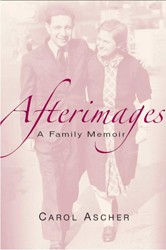This collection of essays, originally in lecture form, has been published in conjunction with the exhibition celebrating the 100th anniversary of the Hebraica Collection at the Library of Congress. From Jacob Schiff’s initial gift to the Library of Congress of 10,000 Hebrew books from the book dealer Ephraim Deinard, the collection has grown to over 200,000 items that have been researched and preserved with the utmost care. Myron Weinstein, in whose memory the annual lectures were given, worked in the Hebraica section for twenty-nine years retiring in 1984 as the head of the section. He is recognized for having expanded the collection and brought it to the attention of scholars around the world.
The topics reflect the particular expertise of the scholars invited to contribute their lectures to this publication. Jonathan Sarna, who adapted his publication on American Jewish publishing in the United States to 1950 for the University of North Carolina Press as “The Jewish Book in America,” focuses on the formation of the Jewish Publication Society in Philadelphia. According to Sarna, the “founders looked to publish books that would prepare American Jewry to assume the burden of Jewish cultural leadership….” He also documents the works of Isaac Leeser and Isaac Mayer Wise, religious leaders who published specifically for their American constituents.
Evelyn Cohen, scholar of manuscripts, compares two manuscripts by the scribe Joel ben Simeon, one of which is the so-called Washington Haggadah, a 1478 work from Ashkenaz. An illustration from the Washington Haggadah — one of the treasures on display at the exhibition — depicting Daniel in the Lion’s Den, graces the cover of this book.
In the essay on the conservation of the Washington Haggadah, Doris Hamburg details the extensive conservation required (including the cover illustration) and the scholarly interest that Myron Weinstein had in restoring the manuscript to its authentic original state.
Zachary Baker examines books on the Yiddish theater and its legacy, including descriptions of well known actors and their personal stories and also a vignette about Ephraim Deinard whose collection was purchased as the seminal gift. Marsha J. Rozeblit analyzes the Mannheimer Prayer book of nineteenth century Vienna.
Because these essays were originally given as lectures they include personal tributes to Weinstein by the authors who knew and admired him, and have a more informal conversational aspect to them than usual scholarly articles. While some of the topics may not have wide general interest the contribution to knowledge about text and community make this collection a commendable achievement.




